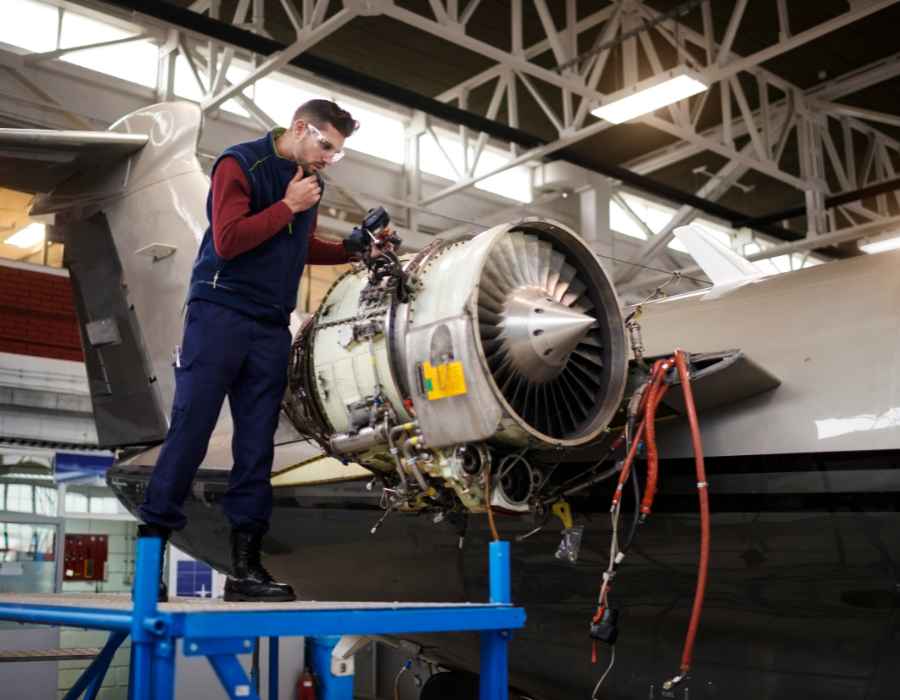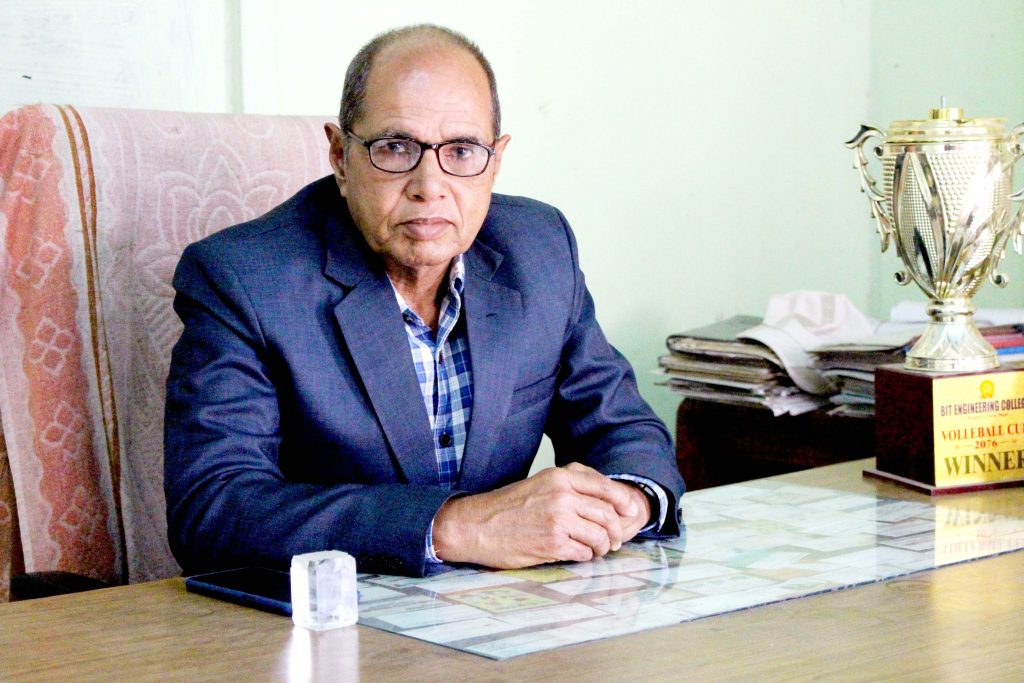- Home
- Diploma in Mechanical Engineering
Diploma in Mechanical Engineering
- Last Updated : 30-11-2022
A Diploma in Civil Engineering is a technical degree program that focuses on the design, construction, and maintenance of various structures such as buildings, bridges, roads, and water supply systems. It typically takes 3-4 years to complete and provides students with a strong foundation in mathematics, physics, and engineering principles. The curriculum of the program covers topics such as engineering mechanics, surveying, construction materials, fluid mechanics, structural analysis, and environmental engineering. Students also gain hands-on experience through laboratory work and practical projects. Upon graduation, diploma holders in civil engineering can work in a variety of fields such as construction, consulting, and public works departments. They can also choose to pursue further studies such as a bachelor’s degree in civil engineering or a related field.
The candidates can receive the application form from the administration office or authorized center by paying the fee structured by CTEVT.
- All Nepalese and foreign candidates must meet the entrance requirement of CTEVT.
- Domicile certificate or passport for foreign students(2 copies).
- Students from the general stream should be SEE/SLC passed or equivalence. TSLC students should have an aggregate mark of 66.66% from IOE and 68.33% from CTEVT.
Far far away, behind the word mountains, far from the countries Vokalia and Consonantia, there live the blind texts. Separated they live in Bookmarksgrove right at the coast.
Get Admission
- Duration: 3 Years
- Category: Mechanical
- Language: English
- Affiliation: CTEVT
Why Choose
Diploma in Mechanical Engineering?

Diploma in Civil engineering is one of the most sought-after branches of engineering, and probably one of the oldest one in human history. A civil engineer is responsible for designing and monitoring the construction and renovation of physical structures, railway projects, roadways, and local and national infrastructure. It is a diverse field with tremendous scope and added prestige.
- Extensive Career Opportunity
- A Global & Lucrative Profession
- Gain a lot of practical experience
- Choose from many postgraduate options
- Enter into an effective graduate scheme
- Have a wealth of job options
- Learn valuable transferable skills
Diploma in Mechanical Engineering
Course Structure
| Subject code | Subjects | Credit Hour | Full Marks |
|---|---|---|---|
| 1 | Applied Nepali | ||
| 2 | Applied English | ||
| 3 | Engineering Mathematics I | ||
| 4 | Engineering Physics I | ||
| 5 | Engineering Chemistry I | ||
| 6 | Engineering Drawing I | ||
| 7 | Computer Application |
| Subject code | Subjects | Credit Hour | Full Marks |
|---|---|---|---|
| 1 | Engineering Mathematics II | ||
| 2 | Engineering Physics II | ||
| 3 | Engineering Chemistry II | ||
| 4 | Workshop Practice I | ||
| 5 | Engineering Drawing II | ||
| 6 | Applied Mechanics |
| Subject code | Subjects | Credit Hour | Full Marks |
|---|---|---|---|
| 1 | Basic Electronics Engineering | ||
| 2 | Electrical Technology | ||
| 3 | Machine Drawing | ||
| 4 | Material Science | ||
| 5 | Thermal Engineering | ||
| 6 | Engineering Dynamics | ||
| 7 | Workshop Practice II | ||
| 8 | Industrial Engineering |
| Subject code | Subjects | Credit Hour | Full Marks |
|---|---|---|---|
| 1 | Manufacturing Technology I | ||
| 2 | Computer Aided Drawing | ||
| 3 | Internal Combustion Engine | ||
| 4 | Machine Element & Mechanism | ||
| 5 | Strength of Materials | ||
| 6 | Fluid Mechanics & Machines | ||
| 7 | Project I |
| Subject code | Subjects | Credit Hour | Full Marks |
|---|---|---|---|
| 1 | Manufacturing Technology II | ||
| 2 | Automobile Technology | ||
| 3 | Fundamentals of Hydraulics and Pneumatics | ||
| 4 | Machine Design, Estimating & Costing | ||
| 5 | Project II | ||
| 6 | Industrial Attachment |
| Subject code | Subjects | Credit Hour | Full Marks |
|---|---|---|---|
| 1 | Advanced Manufacturing Technology | ||
| 2 | Basic Refrigeration and Air-conditioning | ||
| 3 | Occupational Hygiene and Safety | ||
| 4 | Entrepreneurship Development | ||
| 5 | Project III Elective (Any One) a) Project Design b) Hydropower Generation Engineering c) Renewable Energy Technology d) Planning of Mechanical Job Shop |
The Mechanical Engineering graduates will be expert in operating and assembling various machines, making maintenance, plumbing steel fabrication, maintenance of automobiles etc.
The graduates in this stream will get job opportunity in various fields such as ministerial and departmental office, corporation, industry, private workshop etc. It is possible for the graduates to get job in foreign employment and technical institutions as well.
Er. Jay Prakash Biraji
HoD, Mechanical Engineering Department

Team
Faculty Members
- Er. Jay Prakash Biraji - BE(Mechanical)
- Er. Ganesh Kapadi - BE(Mechanical) MA, MBS
- Er. Dipendra Thakur - BE(Mechanical)
- Er. Sandip Agrawal - BE(Mechanical)
- Er. Sagar Chaudhary - AMIE(Mechanical)
- Er. Niranjan Chaurasiya - BE(Mechanical)
- Er. Shyam Kishor Das - BE(Mechanical)
- Mr. Pradeep Chaudhary - DE(Mechanical)
- Mr. Rakesh Yadav - DE(Mechanical)
- Mr. Subodh Yadav - DE(Mechanical)
- Mr. Raja Babu Yadav - DE(Mechanical)
- Mr. Manoj Singh - Mechanical Machines Operator
- Mr. Manistar Kushwaha - Mechanical Machines Operator


